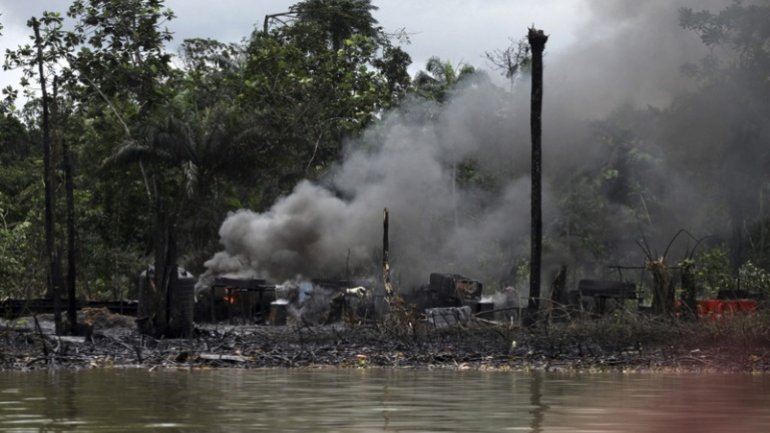Study: Air pollution more deadly in Africa than malnutrition or dirty water

Africa’s air pollution is causing more premature deaths than unsafe water or childhood malnutrition, and could develop into a health and climate crisis reminiscent of those seen in China and India, a study by a global policy forum has found, reports The Guardian.
The first major attempt to calculate both the human and financial cost of the continent’s pollution suggests dirty air could be killing 712,000 people a year prematurely, compared with approximately 542,000 from unsafe water, 275,000 from malnutrition and 391,000 from unsafe sanitation.
While most major environmental hazards have been improving with development gains and industrialization, outdoor (or “ambient particulate”) air pollution from traffic, power generation and industries is increasing rapidly, especially in fast-developing countries such as Egypt, South Africa, Ethiopia and Nigeria.
“Annual deaths from ambient [outdoor] particulate matter pollution across the African continent increased by 36% from 1990 to 2013. Over the same period, deaths from household air pollution also continued to increase, but only by 18%”, said a researcher at the Paris-based Organisation for Economic Co-operation and Development development centre. The OECD is funded by the world’s richest 34 countries.
For Africa as a whole, the estimated economic cost of premature air pollution deaths in 2013 was roughly $215 billion a year for outdoor air pollution, and $232 billion for household, or indoor, air pollution.
The study’s author, Rana Roy, is concerned by the pace at which outdoor air pollution is growing in Africa, bucking the downward trend in most countries. Used cars and trucks imported from rich countries are adding to urban pollution caused by household cooking on open fires.
The study stresses that there is not nearly enough knowledge of the sources of air pollution and its impact in much of Africa. It quotes UK scientist Mathew Evans, professor of atmospheric chemistry at York University, who is leading a large-scale investigation of air pollution in west Africa.
“London and Lagos have entirely different air quality problems. In cities such as London, it’s mainly due to the burning of hydrocarbons for transport. African pollution isn’t like that. There is the burning of rubbish, cooking indoors with inefficient fuel stoves, millions of steel diesel electricity generators, cars which have had the catalytic converters removed and petrochemical plants, all pushing pollutants into the air over the cities. Compounds such as sulfur dioxide, benzene and carbon monoxide, that haven’t been issues in western cities for decades, may be a significant problem in African cities. We simply don’t know.”
Whereas China has reached a level of development that has allowed it to concentrate on solving air pollution, most African countries must grapple with several major environmental burdens at the same time, said the report.
Henri-Bernard Solignac-Lecomte, head of the Europe, Middle east and Africa unit at the OECD development centre, said the paper made a double case for action.
Roy warned that the human and economic costs of air pollution might “explode” without bold policy changes in Africa’s urbanization policies.
She concluded with a call for urgent international action: “If Africa’s local air pollution is contributing to climate change today, at a time when its population stands at 1.2 billion, or 16% of the world’s population, it is safe to suppose that … it is likely to contribute considerably more when its population increases to around 2.5 billion, or 25% of the world’s population in 2050, and thence to around 4.4 billion, or 40% of the world’s population in 2100.”
International
- Study: Abolishing locked psychiatric wards could put patients at risk
- Study: High blood pressure is linked to dementia
- Gap between rich and poor widening in Moldova: -- Research
- Study:Most countries get more calories from alcohol than soft drinks
- UNDP study: Moldovan have too cramped up houses
- Vlad Plahotniuc for The Hill: Moldova needs a new vision, not quick fixes